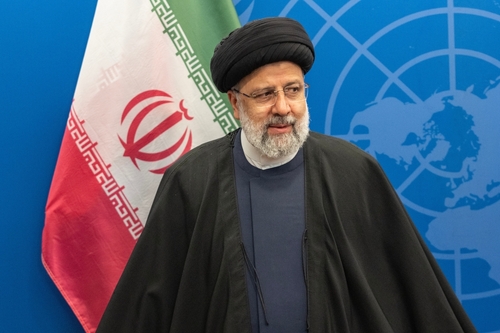In a sobering announcement, U.S. intelligence officials have highlighted the escalating efforts by foreign adversaries to influence the 2024 presidential election. Key among these actors is Iran, which is reportedly intensifying its attempts to prevent former President Donald Trump from returning to office.
On July 29, the Office of the Director of National Intelligence (ODNI) disclosed that both Iran and Russia are at the forefront of these interference efforts. The ODNI's statement underscored Iran’s creation of online personas and disinformation campaigns aimed at swaying public opinion against Trump. Intelligence officials indicated that Tehran's leaders fear a renewed Trump presidency would exacerbate tensions between the U.S. and Iran.
🚨 IRAN IN THE NEWS 🇮🇷
MUCH WOW INCOMING 726-7/27Trump, 7/25
If they do “assassinate President Trump,”… I hope that America obliterates Iran, wipes it off the face of the Earth.
(Look at Trump's 13:31pm TS!!!)John Kirby (NSC), 7/25
“We do know that Iran has been funding… pic.twitter.com/0Vog348nuW— Arya's List 💫 112 🤍 211 (@Stellar17Arya) July 26, 2024
The Biden administration's recent move to unfreeze billions of dollars in Iranian funds as part of a hostage exchange has further complicated the geopolitical landscape. This decision has not deterred Iran's influence operations. Instead, it seems to have galvanized Tehran's resolve to ensure a Democratic victory in the upcoming election. The Iranian regime has been accused of using state media and online platforms to spread misleading information, aiming to foster distrust in U.S. political institutions and deepen social discord.
Intelligence assessments reveal that Iran’s strategy mirrors its previous efforts but with increased sophistication. The use of artificial intelligence and advanced technology has made it easier for Iran to craft convincing disinformation campaigns. These efforts are not limited to the presidential race but extend to down-ballot elections as well, with the goal of shaping a U.S. government that aligns more closely with Iranian interests.
Donald Trump was never supposed to turn his head.
They were going to blame it on Iran.
Were they going to blame the crowdstrike thing on Iran too?
Notice those stories are gone? #WeirdAF pic.twitter.com/t1A80hHnX2
— 🇺🇸Mike🇺🇸 (@FreedomFan88) July 29, 2024
Russia remains another significant player in this arena, continuing its long-standing strategy of supporting Trump. According to U.S. intelligence, Russia aims to undermine candidates who advocate for aid to Ukraine, thus aligning its election meddling with its broader geopolitical objectives. Russian influence operations have evolved to include sophisticated tactics like the use of AI-generated content and networks of fake social media accounts designed to amplify divisive narratives.
Despite these challenges, U.S. officials maintain that the country has significantly improved its election security infrastructure since the 2016 election cycle. Director of National Intelligence Avril Haines testified before the Senate Intelligence Committee, emphasizing the strides made in identifying and combating foreign disinformation campaigns. However, she cautioned that advances in technology have also made it easier for adversaries to disseminate false information, posing a continual threat to the integrity of U.S. elections.
Iran's preference for a Democratic administration reflects its desire to avoid policies that would heighten U.S.-Iran tensions and hurt the current regime in Tehran.
As the 2024 election approaches, the intelligence community anticipates an uptick in foreign interference efforts. Officials are particularly concerned about the potential for these campaigns to erode public trust in the democratic process. The complex interplay of international and domestic actors leveraging advanced technologies underscores the urgent need for robust defenses against election interference.

